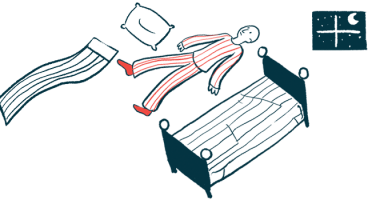Trial Testing CuraSen’s CST-2032 for Neurodegenerative Disease Begins Dosing

The first participants have been dosed in the initial part of a Phase 1 clinical trial evaluating the investigational compound CST-2032 as a treatment for neurodegenerative disease, according to the therapy’s developers, CuraSen Therapeutics.
The trial will enroll up to 70 healthy volunteers and patients with a variety of neurodegenerative disorders, including Parkinson’s disease and mild cognitive impairment (MCI), at testing sites in Belgium and New Zealand.
“We are excited to begin this clinical study with our new drug candidate, CST-2032,” Anthony Ford, PhD, CEO of CuraSen, said in a press release. “Neurodegenerative disease represents an enormous health burden in the U.S. and globally.”
Research has shown that the earliest signs of neurodegenerative disease onset are observed in the locus coeruleus, a region of the brain that plays a key role in the synthesis of the hormone norepinephrine, also called noradrenaline. In the brain, norepinephrine plays a role in increasing attention and focusing on performing a task, in memory storage, and in the sleep-wake cycle — helping a person wake up.
In the pathology of neurodegenerative disease, damage to the locus coeruleus results in the loss of norepinephrine, which subsequently causes the degradation of other nerve cell types and, ultimately, neurodegeneration.
Scientists at CuraSen sought to develop a treatment that would restore functionality in the locus coeruleus and, in turn, protect the brain from the damaging symptoms associated with neurodegenerative diseases.
Initially, three adrenergic compounds called CST-101, CST-103, and CST-109 — designed to enhance or mimic norepinephrine activity in the brain — were evaluated. Clinical trials in a total of 100 healthy volunteers and patients investigated their effects on brain activity.
Those tests were designed not only to investigate the adrenergic compounds, but to develop specific biomarkers and assessment tools that could be used to specifically evaluate this mechanism of action as a treatment.
“Historically, the lack of reliable biomarkers and assessment tools has made the development of effective neurodegenerative disease therapeutics very challenging,” said Gabriel Vargas, MD, PhD, chief medical officer at CuraSen. “At CuraSen, we have been able to employ a suite of sophisticated tools and glean valuable insights studying adrenergic drugs in the clinic at some of the leading clinical centers in brain research, thereby providing us with confidence to move forward with CST-2032.”
That research led to the development of CST-2032, an adrenergic treatment designed to stimulate specific receptors in the brain and ultimately restore functionality to multiple nervous system cell types, with the overall goal of improving brain integrity and function.
The Phase 1 clinical trial investigating CST-2032 will take place in three parts, including the initial single ascending dose part and a subsequent multiple ascending dose part.
Both of those parts will test increasing dosage levels of CST-2032 in enrolled patients and healthy volunteers. Notably, the first part will only include a single dose of CST-2032 whereas the second part will include multiple doses.
The efficacy of the treatment will be assessed using biomarker analysis, brain imaging techniques, and tests of the autonomic nervous system, or the part of the nervous system that regulates unconscious bodily functions such as breathing or heart rate.
Finally, the third part of the trial will evaluate the same measures in patients who have already received the treatment.
The CuraSen team hopes to further advance CST-2032’s development by launching a Phase 2 trial in 2021.
“Informed by findings from our completed clinical studies that used adrenergic drugs from other therapeutic areas, we were able to establish the ideal characteristics for a new compound and rapidly incorporate them into the design of CST-2032,” Ford said.
“Progressing this proprietary program from discovery to human clinical study in less than two years is an impressive achievement and validates the collective efforts of our experienced team and advisor network,” he added.






